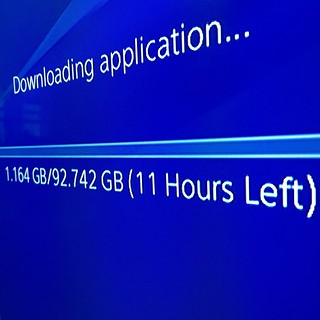w/e 4 November 2018
Another fairly idle week. My next work project, which was due to start, turns out to not be quite ready for me yet, and probably won’t be next week either. Freelancing! On the plus side I tidied up a bunch of outstanding little coding tasks of my own, which was satisfying.
After a couple of months I finished reading Antony Beevor’s nearly 1000 page The Second World War and it was very good. My knowledge of the war comes from school, from watching The World at War (and reading the accompanying book) as a kid, and in the same piecemeal ways that we all pick up fragments of the thing over the years.
I chose Beevor’s book after seeing it referred to in a review of a different book as something like “the best single-volume history” of the war. I forget exactly who and where.
Reading the book was, wel…. “sobering” feels like an understatement. And saying that the book makes clear the depth and scale of suffering feels like stating the obvious. It’s hardly believable.
Oddly, the older I get the more contemporary World War II seems. I was born 26-ish years after it ended which, as a child seems like forever. But now a span of 26 years really doesn’t feel long at all.
Beevor does a great job of conveying the scale of events in a readable fashion. Although the book is long, barely a word is wasted as he balances the military manoeuvres, the political plotting, and the human suffering, whether that of soldiers or civilians. If anything, it was the effect on civilian lives, particularly across continental Europe and Asia, that was most horrifying. Some of the most dispiriting descriptions were those of powerful men who, so often, were egotistical, bull-headed, and refused to listen to news that contradicted what they believed was happening. And then there was the behaviour of ordinary people who did terrible things… I could go on, obviously.
Anyway, while I can’t compare it to any other books on the same events, it’s recommended if your knowledge of the war is as patchy as mine was.

My PlayStation 4 spent a day downloading Red Dead Redemption 2 and, eventually, I was able to play it. This has coincided with my more adventurous half heading to Nepal for a month. How convenient.
I’ve only played RDR2 for a few hours and it’s amazing how much more “realistic” it is than the previous game, which is both good and bad. The good is that it looks stunning. Beautiful and detailed and vast, with characters behaving slightly more believably than before. It’s lovely to simply wander around, once you’re done with the initial compulsory missions.
The bad side to the realism is all the extra non-visual detail. For example, your character should eat and/or sleep every so often to keep his health up. Fair enough, I guess. But he should also shave, and keep clean, and keep his horse fed and clean, and no doubt other bits of tedious house-keeping. It all seems a bit of a faff. I’m surprised there are no bladder and bowel indicators, and a requirement for him to relieve himself frequently unless he wants to suffer a messy embarrassment at an inconvenient moment.
The controls also seem more complicated. I died four times in one duel before I could read and understand the brief on-screen instructions of how to aim my pistol. I’m constantly confused about how to find any item in my satchel, or on the horse, and then hold it. Hopefully this stuff will get easier, but there’s a lot of fiddly button pressing which gets in the way of that “realism”.
Here’s an untested theory* that sprang to mind while playing: video games will only be good at “story telling” when they can tell a story without the aid of cut scenes.
(* My usual caveat when writing about video games: Many people have spent years writing seriously about this stuff and I assume my thoughts are old hat, if not laughable.)
There are a lot of cut scenes to watch early on in RDR2 and, as pretty as they are, they get a bit tiresome when one is itching to play. It feels like going to watch a movie and, every so often, the lights go up for you to read the next bit of plot from a book. Occasionally, as in the first RDR, some exposition is given while you’re on a journey, rather than in a cut scene, which feels less jarring, as you’re at least “playing” a little (gently steering your horse or wagon to stay with others).
I think the biggest mismatch between playing and watching I’ve experienced was in whichever Gears of War I enjoyed playing, in which the action involves huge men shooting huge guns at huge aliens. And then, every so often, the action would pause for a cut scene in which one of the huge men would have a cry about their dad who missing or dead or whatEVER! Don’t pretend there’s a story! We’re only here to do lots of shooting.
Anyway, now I’m past the start of RDR2 the cut scenes have settled down a bit and I’m able to wander around, exploring on my own without the stupid gang to think about, so it’s getting better.
That’s all. I hope you have a productive and/or enjoyable week.